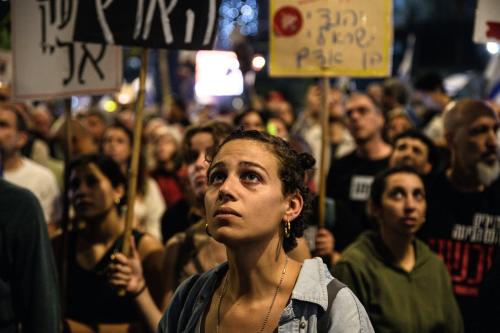“I want to help build a bridge to the Middle East that won’t break.” — Kevin Patrick, CEO, Share the Mic
“You do not love America! If you loved America, you would send me singers!” Entesar Abd El Fatth, director of El-Ghouri Center for Musical Heritage and Cairo’s International Sufi Festival, shouted at a bewildered Michael Hankey, American cultural attaché at the U.S. Embassy, Cairo. Fluent in Arabic and well-connected in Egypt, Hankey eventually understood El Fatth’s adverse reaction to the American jazz/fusion group he had proposed for the Sufi Festival.
For the past 20 years El Fatth had asked the American Embassy to send a gospel group to Cairo, with no success. Now that he had the perfect venue — the Sufi Festival — and an able and willing partner in Mr. Hankey, he was determined not to miss the opportunity.
Luckily, Hankey was working with Share the Mic, a multi-service company that pairs performing artists and humanitarian causes in strategic partnerships that benefit both. With less than two weeks before the opening of the Festival, he called Kevin Patrick, CEO of Share the Mic, with the request to cancel plans and plane tickets, and find a different group for Cairo. Patrick quickly recruited the New York-based gospel group Voices of Inspiration (VOI) to take their first trip ever to the Middle East.
Fast forward to Aug. 17, when the three singers of VOI led musicians from seven Muslim majority countries, including Egypt, Pakistan and Indonesia, in a rousing chorus of “Oh, Happy Day!” in perfect harmony with Sufi chants. It did not matter that Alana Alexander, Danielle Lewis and John Garner had no familiarity with Sufism. They shared with the other musicians the celebration of spirituality through music.
When I surveyed the Festival audience of young revolutionaries, elderly couples, Egyptians and Arabs of all ages — covered and uncovered — I saw smiles all around. Musical director El Fatth, who by then was calling the American singers “my family,” had the biggest smile of all. His Festival theme — “cultural dialogue among nations” — had come alive. And the first American invitees ever to the Cairo Sufi Festival had fit in perfectly with the other musicians, language barriers notwithstanding, adding infectious energy and joy to the concerts.
At their final performance, Director of Foreign Cultural Relations at the Culture Ministry Hossam Nassar, who had co-hosted Voices of Inspiration with the American Embassy, invited the Americans forward, and calling the singers “voices from heaven,” offered public thanks and presented each person with a poster of the Sufi Festival with “USA” and an image of the American flag printed on it. In a climate of strong anti-Americanism, how can such a positive and public response to something American be explained?
First, music truly is a universal language, but its full potential to bridge differences is rarely realized. The seeds for the success of Voices of Inspiration’s Cairo tour were sown when cultural attaché Michael Hankey and his partner Kevin Patrick of Share the Mic listened to and respected the wishes of their Egyptian hosts. Secondly, notwithstanding the fearful predictions of families and friends, the Voices of Inspiration arrived in post-revolutionary Egypt with open hearts and minds. As they later learned, their fellow musicians were astonished by the “Americans’” willingness to interact and jam.
“No surprise to me. It’s something that naturally happens amongst musicians. I was, however, surprised by the warmth and love showered upon us by the Egyptian people. My perspective will never again be the same.” Alana speaks for the group, who already have begun working on an original gospel song about bridging cultural differences, to be translated into Arabic. All proceeds from the song will go to the Health and Hope Oasis, the children’s cancer hospital they visited in Cairo, bringing children to their feet clapping and dancing in spite of their IVs and inspiring the hospital workers to ululate to the music.
One child at the hospital asked the inevitable question, “Are you coming back?” Thanks to Share the Mic’s innovative formula of performance with service to form lasting bridges between cultures, the answer is “Yes!” Voices of Inspiration, who support cancer prevention in the U.S., have committed to supporting the hospital, and Entessar El Fatth already has invited them back to Egypt.
An added bonus was the late night jam sessions with the Pakistani musicians participating in the Sufi Festival. Gospel met qawwali in mutual admiration singing and talking sessions that lasted until dawn. VOI now also has been invited to Pakistan.
Cultural exchange is all about changing perceptions. VOI were nervous about visiting Egypt, and the artists with whom they performed had preconceived ideas about Americans. All stereotypes were shattered by the exuberant performances in the el-Ghouri mosque courtyard.
For Egyptians, rebuilding their country the Festival contained a deeper message. On opening night, musicians from New Delhi to New York sang the familiar Sufi chant (in Arabic), “Jesus is a prophet, Mohammed is a prophet, Moses is a prophet.” El Fatth added a closing line full of meaning at this historic moment, “Egypt is one family.” At a time when extremism threatens to undermine Egypt’s multi-ethnic unity, Sufism, which permeates society at all levels, offers a message of peace and tolerance.


Commentary
Op-edThe Gospel of Sufism in Post-Revolutionary Egypt
September 16, 2011